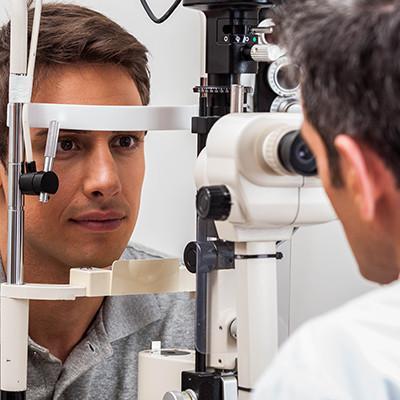Low Carb Lasagna
Ingredients Zucchini: 2 Medium-Large Kale: 1 bunch kale (I like to use Russian Hunger kale because it is a flat leaf) Marinara sauce: 1 Cup (250 ml) Mozzarella Cheese: 1 Cup (100 g), shredded, low moisture, part skim Ricotta Cheese: 1 Cup (250 g), low moisture, part skim Parmesan Cheese: 1/2 Cup (50 g), shredded 1 egg Turkey: 1 lb (500 g) ground, extra lean Garlic: 2 cloves Onion: 1/2 white onion Oregano: 2-3 stems Salt: 1 pinch Instructions Preheat...
Read MoreHypoglycemia
Hypoglycemia occurs when your blood glucose drops too low. The body responds to low blood glucose with warning signs that may be different in each person. Some warning signs of low blood glucose are feeling: Weak Shaky Sweaty Irritable or confused Hungry Low blood glucose may occur if your meal or snack is delayed or missed, after vigorous physical activity, or if too much insulin is given. In a person without diabetes, the pancreas will stop producing insulin if the blood glucose level falls below normal. In a person with diabetes, the insulin they...
Read MoreEating Healthy with Diabetes
You don’t have to sacrifice your target blood sugar levels to enjoy some of your favorite foods. Here’s how to eat healthy with #diabetes, whether you’re cooking at home, or eating in a restaurant. Carbohydrates and your blood sugar Carbohydrates are sugars. They break down in the body creating glucose, a main source of energy. Counting the carbs you eat at every meal and pairing them with the correct dosage of insulin can keep your blood sugar level closer to normal range.1 It also allows you to eat a wider variety of foods. In fact, your diet can accommodate any food in moderation, so you don’t have...
Read MoreChoosing 1 Thing to Improve
There are probably many things that each of us would like to change about our life, but thinking about them all at once can be overwhelming. Instead, choose just 1 thing to improve for now. Changing any one of the things below could have a big impact on your life with diabetes – both your physical health, and your emotional well-being. Make testing matter For people with diabetes, testing more often is the key to staying in control of your health. Frequent testing provides the data you need to make informed decisions about your medication, diet, and exercise regimens. Your test results show you the...
Read MoreManaging Diabetes Complications: High Blood Pressure
High blood pressure, or hypertension, occurs when the force of blood flow inside blood vessels is too high. The heart has to work harder to pump blood through the body, which can contribute to serious health problems. People with diabetes and high blood pressure have nearly twice the risk of heart disease as people who have only high blood pressure. Studies also show an increased risk of kidney damage, diabetic eye disease and stroke when hypertension is a factor.1 Causes of High Blood Pressure According to the Public Health Agency of Canada, about 40% of people with diabetes also have high blood...
Read MoreManaging Diabetes Complications: Foot Problems
Proper foot care is an important part of a person with diabetes’ daily routine. High blood glucose levels can damage the blood vessels that carry oxygen and nutrients to the legs and feet. This can lead to nerve damage, poor circulation, infections and foot deformities. Diabetes is often associated with foot problems and amputation. Not including those caused by accidents or trauma, more than 60% of lower-limb amputations performed each year are on people with diabetes. 1 What to Look For The Canadian Diabetes Association recommends that your feet be examined at least once a year—more often if...
Read MoreManaging Diabetes Complications: Eye Disease
People with diabetes are at higher risk for several types of eye disease, including retinopathy, cataracts and glaucoma. Any of these diseases can lead to blindness over time. Early detection is the key to avoiding or lessening the risk of these diseases. Retinopathy, the most common eye disease in people with diabetes, is caused by damage to the blood vessels of the retina that helps us to see. In some cases, these vessels may swell and leak fluid. This is called nonproliferative, or backgroundretinopathy. As these areas heal, scarring occurs and abnormal new blood vessels may grow on the retina's...
Read MoreConfused about Diabetes? Not Anymore...
DISCLAIMER: By providing information to Marham via this affirmation, participants hereby agree to the terms & conditions and allow, authorize, permit and give consent to record, capture, save the information in their customer databases or on third-party servers or cloud and use the same for internal & marketing purposes in the manner that Marham & Roche may deem fit.
Read MoreManaging Diabetes Complications: Dental and Gum Care
People with diabetes are more than twice as likely to have gum disease as people without diabetes. Both gum disease and gum infection are common complications of diabetes. In fact, nearly one-third of people with diabetes have severe periodontal disease.1 Regular dental checkups and good dental care at home can reduce dental problems. Types of Problems In addition to tooth decay and gum disease, you may experience these other problems that occur more often in people with diabetes: Thrush (oral candidiasis) is a fungal infection in the mouth that causes white or red spots on the...
Read MorePages
Hypoglycemia
Hypoglycemia occurs when your blood glucose drops too low. The body responds to low blood glucose with warning signs that may be different in each person. Some warning signs of low blood glucose are feeling: Weak Shaky Sweaty Irritable or confused Hungry Low blood glucose may occur if your meal or snack is delayed or missed, after vigorous physical activity, or if too much insulin is given. In a person without diabetes, the pancreas will stop producing insulin if the blood glucose level falls below normal. In a person with diabetes, the insulin they...
Read MoreEating Healthy with Diabetes
You don’t have to sacrifice your target blood sugar levels to enjoy some of your favorite foods. Here’s how to eat healthy with #diabetes, whether you’re cooking at home, or eating in a restaurant. Carbohydrates and your blood sugar Carbohydrates are sugars. They break down in the body creating glucose, a main source of energy. Counting the carbs you eat at every meal and pairing them with the correct dosage of insulin can keep your blood sugar level closer to normal range.1 It also allows you to eat a wider variety of foods. In fact, your diet can accommodate any food in moderation, so you don’t have...
Read MoreChoosing 1 Thing to Improve
There are probably many things that each of us would like to change about our life, but thinking about them all at once can be overwhelming. Instead, choose just 1 thing to improve for now. Changing any one of the things below could have a big impact on your life with diabetes – both your physical health, and your emotional well-being. Make testing matter For people with diabetes, testing more often is the key to staying in control of your health. Frequent testing provides the data you need to make informed decisions about your medication, diet, and exercise regimens. Your test results show you the...
Read MoreManaging Diabetes Complications: High Blood Pressure
High blood pressure, or hypertension, occurs when the force of blood flow inside blood vessels is too high. The heart has to work harder to pump blood through the body, which can contribute to serious health problems. People with diabetes and high blood pressure have nearly twice the risk of heart disease as people who have only high blood pressure. Studies also show an increased risk of kidney damage, diabetic eye disease and stroke when hypertension is a factor.1 Causes of High Blood Pressure According to the Public Health Agency of Canada, about 40% of people with diabetes also have high blood...
Read MoreManaging Diabetes Complications: Foot Problems
Proper foot care is an important part of a person with diabetes’ daily routine. High blood glucose levels can damage the blood vessels that carry oxygen and nutrients to the legs and feet. This can lead to nerve damage, poor circulation, infections and foot deformities. Diabetes is often associated with foot problems and amputation. Not including those caused by accidents or trauma, more than 60% of lower-limb amputations performed each year are on people with diabetes. 1 What to Look For The Canadian Diabetes Association recommends that your feet be examined at least once a year—more often if...
Read MoreManaging Diabetes Complications: Eye Disease
People with diabetes are at higher risk for several types of eye disease, including retinopathy, cataracts and glaucoma. Any of these diseases can lead to blindness over time. Early detection is the key to avoiding or lessening the risk of these diseases. Retinopathy, the most common eye disease in people with diabetes, is caused by damage to the blood vessels of the retina that helps us to see. In some cases, these vessels may swell and leak fluid. This is called nonproliferative, or backgroundretinopathy. As these areas heal, scarring occurs and abnormal new blood vessels may grow on the retina's...
Read MoreConfused about Diabetes? Not Anymore...
DISCLAIMER: By providing information to Marham via this affirmation, participants hereby agree to the terms & conditions and allow, authorize, permit and give consent to record, capture, save the information in their customer databases or on third-party servers or cloud and use the same for internal & marketing purposes in the manner that Marham & Roche may deem fit.
Read MoreManaging Diabetes Complications: Dental and Gum Care
People with diabetes are more than twice as likely to have gum disease as people without diabetes. Both gum disease and gum infection are common complications of diabetes. In fact, nearly one-third of people with diabetes have severe periodontal disease.1 Regular dental checkups and good dental care at home can reduce dental problems. Types of Problems In addition to tooth decay and gum disease, you may experience these other problems that occur more often in people with diabetes: Thrush (oral candidiasis) is a fungal infection in the mouth that causes white or red spots on the...
Read More








